Njamito Goes Fairtrade for Cocoa and Vanilla
March 31, 2025Njamito is now Fairtrade certified for cocoa and vanilla! Here’s what that means for farmers, the planet, and the values behind our meal-in-a-bottle.
Read articleLoginEKO leads the transformation of the food system with sustainable farming practices, software, traceability solution, new foods, and policy initiatives.
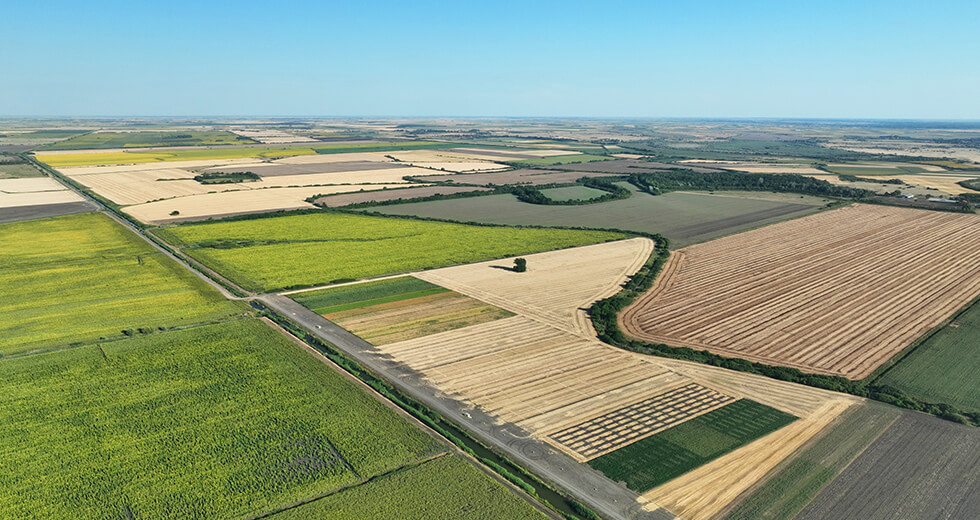
Samo Login harbored a vision for a better world. One where humanity thrived in harmony with the planet, living healthier lives. Passionate about working on non-profit projects that could make a positive impact, Samo delved into the complexities of global issues and quickly understood that the key challenge of the future would be how to sustainably produce food for a growing population.
“Being a father myself, our unsustainable life started to concern me: how will the future look for my grandkids?”
And so, in 2018, Samo’s vision took shape in the form of LoginEKO. With a simple yet powerful mission – healthy food for everyone – this project aimed to transform the food system, paving the way for a sustainable future.
So, how is this ambitious goal now becoming a reality?
Samo knew that mere pledges and promises wouldn’t suffice. The entire food system, from seed to table, needed a radical overhaul. It was time to get serious and take concrete action.
Determined to make a difference, he dedicated himself to finding solutions that would ensure a more sustainable life for future generations.
Every journey starts with a first step. For the transformation to a sustainable food system this means focusing on the very foundation of food production: how we cultivate our crops. Traditional agricultural methods, often referred to as conventional agriculture, prioritize short-term yield gains at the expense of long-term sustainability. These practices exhaust the soil’s organic matter and contaminate groundwater with pesticides and chemical fertilizers. Unfortunately, the outlook is grim if we persist with this approach.
According to the FAO, 33% of the Earth's soils are already degraded, and without intervention, over 90% could face degradation by 2050.
Moreover, there are no spare resources for crop cultivation that won’t worsen our situation, as they all involve some form of deforestation. And the shifting climate may render some current farmlands unsuitable for cultivation.
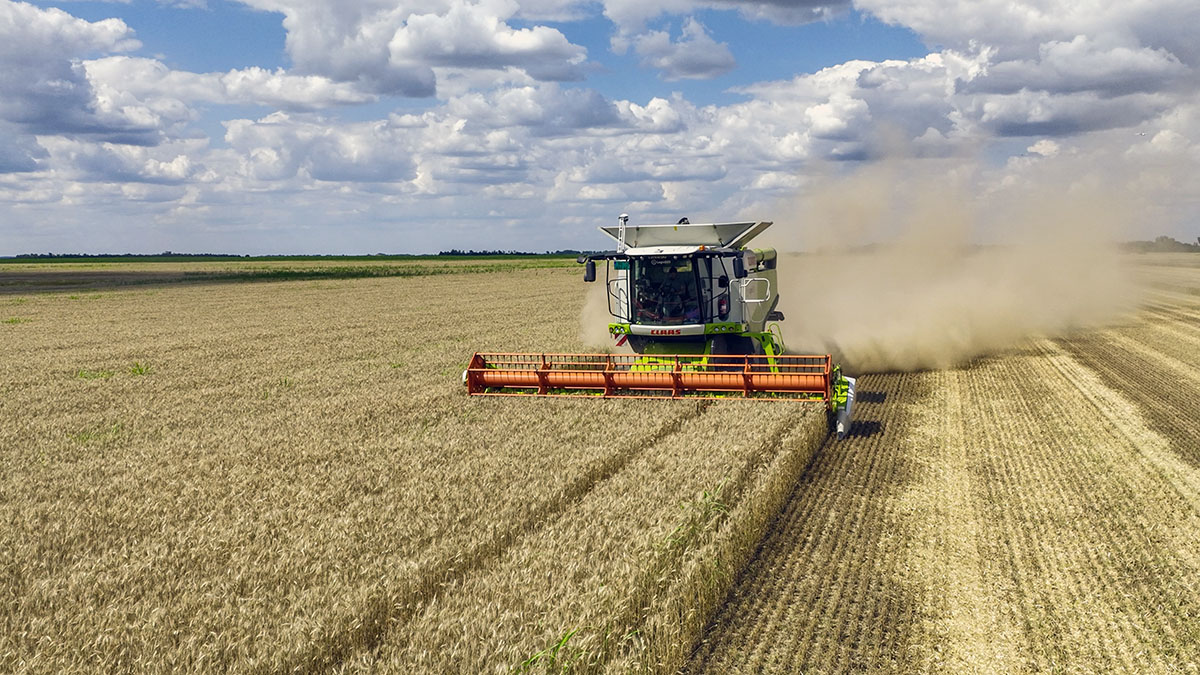
And so, any method used to grow crops must be sustainable if we wish to continue producing healthy food on our planet.
Sustainability, in essence, means utilizing resources repeatedly without depletion. This principle guides our efforts as we work to develop solutions for sustainable agriculture.
Research-driven farming solutions are at the core of our methodology. And they are grounded in both ecological principles and sustainability. We understand that not all ecological approaches are inherently sustainable, and we design our solutions to ensure their long-term viability.
Our dedicated Agro R&D team conducts field trials to test and validate each sustainable solution. Once proven effective, we implement these solutions across our 3,700 hectares of organically certified fields with the ultimate aim is to share our knowledge, methods and practices with other farmers for free. Only in this way can we speed up the transition towards a greener, more resilient food system for the benefit of both present and future generations.
If you’re wondering what industry is not (yet) properly digitalized, look no further. While many aspects of life have by now confidently adopted modern data-driven methods, farming is not one of them. Samo and the team at LoginEKO soon realized that existing farming software solutions lacked certain features needed for the LoginEKO farm. So, we decided to make our own software.
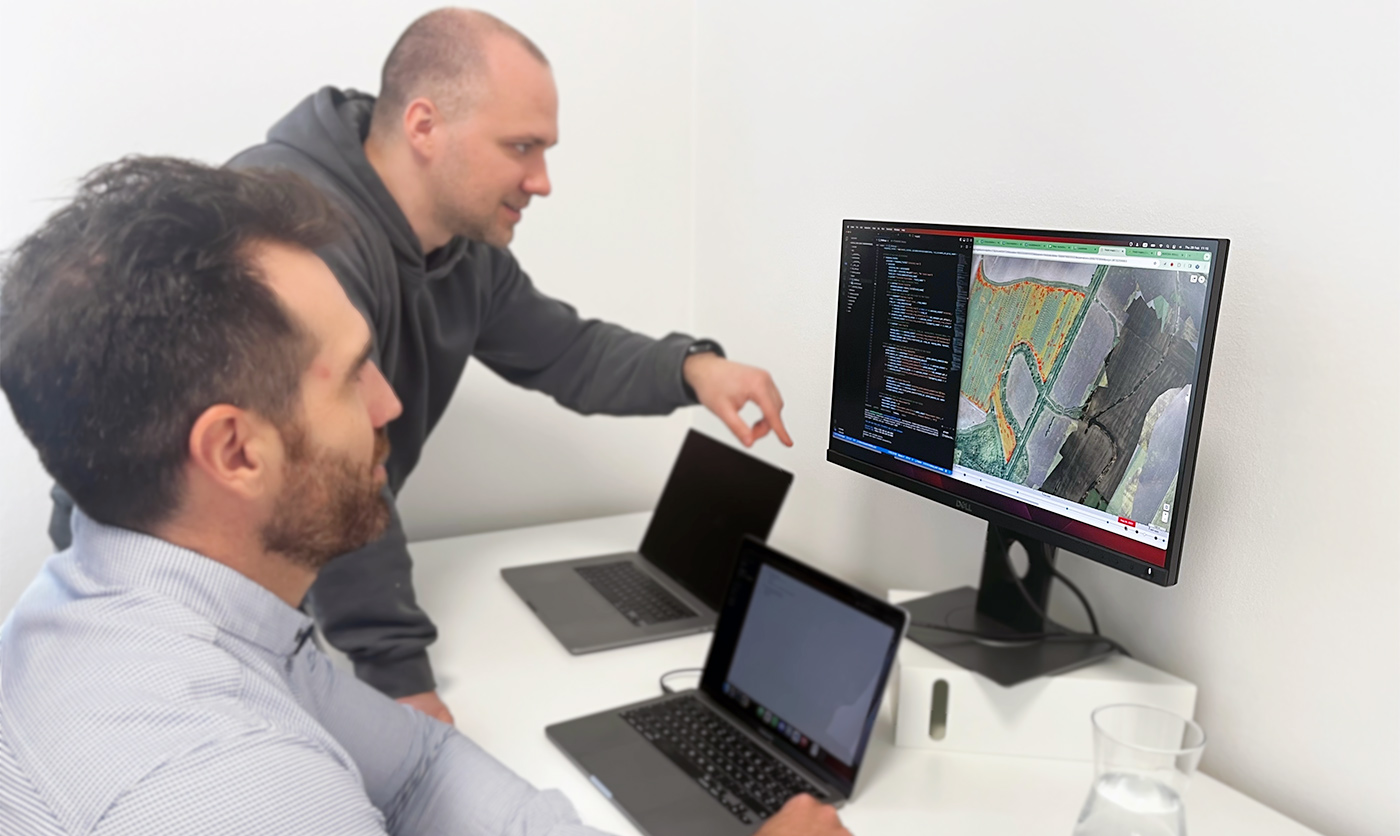
LoginEKO is the only large-scale farm with its own software development team, and a software development team with its own large-scale farm to ensure that our software meets real-world needs.
Our teams also quickly understood that farmers are reluctant to test and implement new technologies, as agriculture is a particularly low-profit business. To help them achieve higher efficiency and confidence in (new) techniques, we are now fine tuning a farming software solution to help efficiently manage all aspects of farming operations from a single user-friendly platform. And we will share it for free.
Once crops are grown, harvested, and stored, they are turned into food for people. To improve the food system, we have to change our diets too. Change them in a way so that they become healthier for us, and for the planet.
Our Food development team understood that in the near future, what people will look out for will be convenient, healthy, and sustainable food options. So, if we could create a quick, tasty, healthy and plant-based meal, we could drive a switch to a diet that’s good for people’s health and the planet.
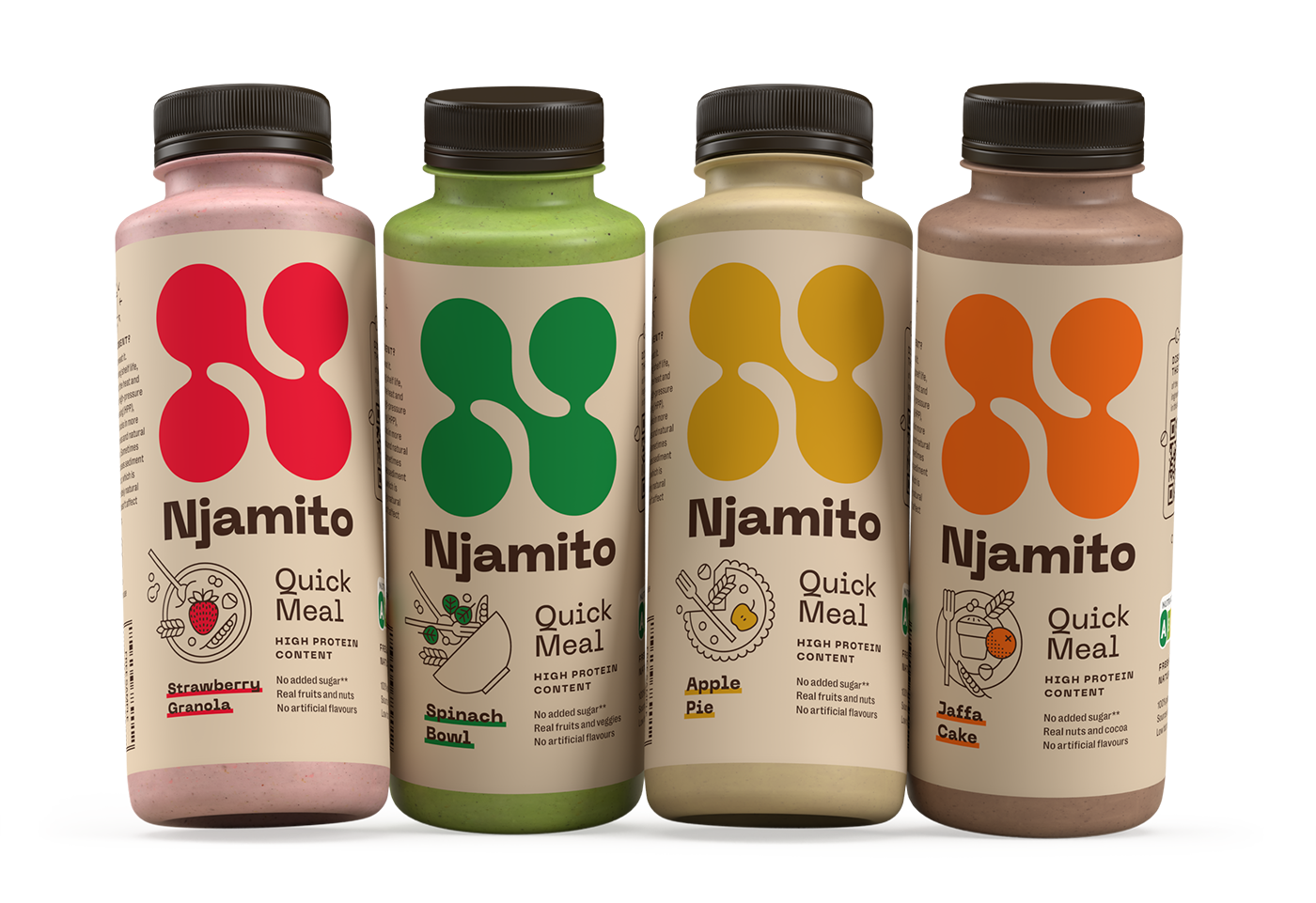
This led us to develop Njamito, an innovative organic meal in a bottle. Made with organic plant-based ingredients and nutritious, Njamito was launched in Slovenia in October 2023.
And don’t worry, we won’t keep this tasty, healthy, sustainable, and convenient meal only to ourselves. We’re determined to share our knowledge with other food producers and help them offer better food options to their customers.
What if you could understand exactly how your food was grown, stored, transported, processed and produced? With modern technology, this should not be hard at all. Somebody just has to do it.
A side product of our farming software is a traceability solution. We can already show full background information for our 8,700 tonnes of annually produced organic crops. Their individual traceability sheets are publicly available to anyone, and we are proud to stand by what we grow.
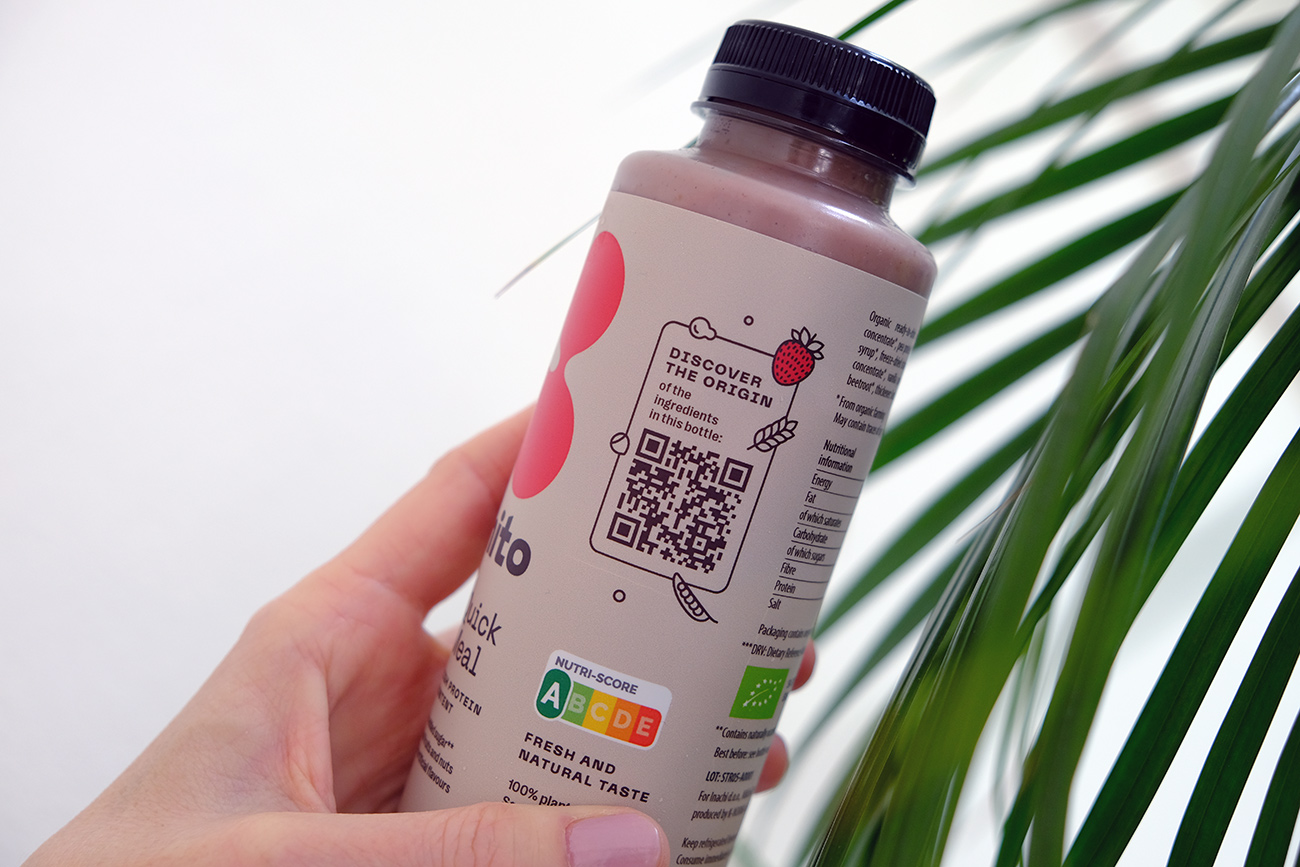
At the other end, we can show traceability for ingredients in Njamito, and one of them is particularly special. The oat porridge, one of the main ingredients of our meal in a bottle, can now be traced all the way from the LoginEKO field, where oats were sown to the Njamito bottle.
We have taken our traceability to the ultimate level: from seed to fridge. It is transparent and easy to understand.
Traceability brings many benefits, from enabling better decision making for consumers, to better ways for governments to incentivise farmers and food producers in implementing sustainable practices.
But probably the most important benefit is that traceability enables trust. Trust between the farmer and the consumer, trust within the food supply chain, and trust that we are all working towards a more sustainable future.
Finally, a systemic change cannot happen without targeted policies that support it. And so, at LoginEKO, we also work on insights and recommendations for policy-makers. Focusing particularly on the areas of fair taxation, subsidies to support sustainable farming, and traceability measures for food safety, we are eager to guide good decision-making for a sustainable future.
Imagine a future where harmful practices are taxed more heavily, while environmentally beneficial practices receive financial support. All while making sure that our soil, biodiversity, water, and air are protected and managed in a sustainable way.
Together with over 150 associates, from agronomists to software developers, analysts, food scientists, field production experts, traders, strategists, and communicators, Samo continues to relentlessly develop solutions to pursue his vision: healthy food for everyone. His goal is simple yet profound: to safeguard the well-being of future generations so they can continue to thrive on our beautiful planet.
Njamito is now Fairtrade certified for cocoa and vanilla! Here’s what that means for farmers, the planet, and the values behind our meal-in-a-bottle.
Read articleIdealism met reality as we launched our meal-in-a-bottle, Njamito. After 100.000 bottles sold, here’s what we learned about organic food and market adaptation.
Read articleWith organic seeds in short supply, we launched our own organic seed production journey to secure sustainable farming practices.
Read article